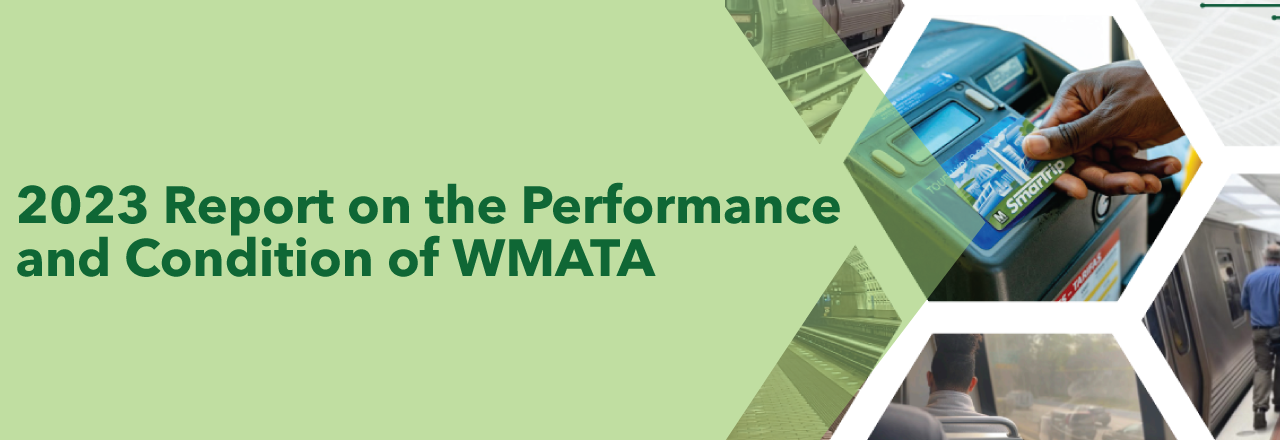Through inflation and reduced ridership, the pandemic disrupted the financial operating model of transit agencies across the United States. All major transit systems, including Metro, face massive operating budget shortfalls as they exhaust their remaining federal pandemic aid. In its 2023 Report on the Performance and Condition of the Washington Metropolitan Area Transit Authority (WMATA), the Northern Virginia Transportation Commission (NVTC) provides Funding, Accountability, and Reform Recommendations for Metro and the region to stabilize Metro in the near-term and to use as a framework to develop long-term funding and accountability solutions. The report also includes information on the uses of Virginia’s dedicated capital funding, recent major accomplishments in Metro’s capital program, and data on reliability, ridership and financial performance.

The COVID-19 pandemic and subsequent decline in transit ridership accelerated structural financial challenges faced by Metro. Federal COVID aid will be exhausted by FY 2025 and will result in future operating gaps for years to come. Metro has laid the groundwork for a continued recovery by providing frequent, reliable service and finding meaningful budget savings that help reduce the operating funding gap. Metro’s identification of meaningful cost savings sets the stage for the Metro Board of Directors, the Commonwealth and NVTC’s funding jurisdictions to confront difficult tradeoffs in the first post-pandemic operating budget where federal aid is exhausted. Without action, the region will be faced with devasting service cuts that will jeopardize an ongoing ridership recovery and undermine a critical component of the Commonwealth’s economy.
- Seek administrative or legislative opportunities to permit Metro to re-baseline its FY 2025 operating subsidy bill to reflect the impact of the COVID-19 pandemic.
- Advocate for additional state aid in FY 2025 to match local funding for Metro.
- Seek a commitment from federal, state, regional and local funding partners to develop long-term, sustainable, dedicated funding to meet Metro’s capital and operating needs.
- Return federal workers to the office and secure a replacement for the region’s losses in fares from riders using federal transit benefits.
- Manage labor cost escalation through reforms to pension and other post-employment benefits (OPEB).
-
- Increase worker contributions to pensions and OPEB.
- Limit or prohibit overtime earnings towards retirement pay.
- Implement Metro’s Office of the Inspector General (OIG) findings to improve controls and governance and explore alternative retirement plans.
-
- Seek Amendments to the federal Wolf Act that would require consideration of Metro’s fiscal condition and jurisdictions’ ability to pay in binding arbitration.
- Establish a revised Virginia and Maryland legislative operating assistance growth cap that addresses the unintended consequences of the current cap.
- Improve farebox recovery by raising fares for Metrorail and Metrobus.
- Formalize the functions and scope of a Metro Board audit committee to enhance oversight via a coordinated jurisdictional audit.
- Secure one or more sustainable and reliable sources of dedicated revenues to support additional operating funding.
- Establish a rainy-day fund at Metro.
- Secure one or more sustainable and reliable sources of dedicated revenues to support additional capital funding.
- Sustain NVTC’s technical, policy, financial and legislative efforts to support the implementation of recommendations.
Legislative Requirement for the Annual Report on the Performance and Condition of WMATA
NVTC is required by state code (§33.2-3403) to report annually (by December 15) to the Governor and General Assembly on the performance and condition of WMATA.


